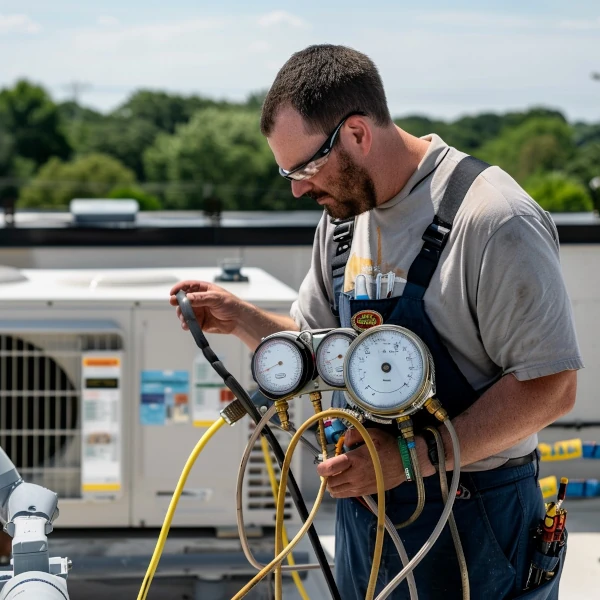
The lifespan of a commercial HVAC unit can vary significantly based on several factors including the type of unit, its usage, and how well it has been maintained. On average, most commercial HVAC systems last between 15 to 20 years. However, this is just a general estimate; some units may need replacement sooner while others can last longer with proper care.
When it comes to maintaining a comfortable and efficient work environment, the importance of a well-functioning HVAC system cannot be overstated. Commercial HVAC units are the backbone of climate control in business settings, ensuring that employees and customers alike enjoy a pleasant atmosphere. However, like any mechanical system, these units have a finite lifespan. This brings us to an important question: how often should commercial HVAC units be replaced?
While knowing the average lifespan is helpful, it’s also important to recognize specific signs that indicate your commercial HVAC unit may need replacement.
One clear sign that your commercial HVAC system might be nearing the end of its useful life is an increase in repair frequency. If you find yourself calling for commercial HVAC repairs more often than usual, it could be more cost-effective in the long run to replace the unit rather than continually fixing it.
Older or failing systems tend to be less efficient, which can result in higher energy bills. If you notice a significant increase in your utility costs without any changes in usage patterns, it might be time to consider replacing your unit with a more energy-efficient model.
If certain areas within your building are too hot or too cold despite adjustments to the thermostat, this could indicate that your HVAC system is struggling to maintain consistent temperatures and may need replacement.
Strange noises such as grinding or squealing sounds coming from your unit are often signs of mechanical issues that could lead to failure if not addressed promptly. Similarly, unusual odors could indicate problems like mold growth or electrical issues.
Replacing an old or failing commercial HVAC unit offers several benefits beyond just avoiding breakdowns and costly repairs.
Modern HVAC systems are designed with energy efficiency in mind. Upgrading to a newer model can significantly reduce your energy consumption and lower utility bills.
A new (properly sized and balanced) system will provide better temperature control and air quality, creating a more comfortable environment for employees and customers alike.
Newer units typically require less maintenance compared to older ones that may have worn-out components needing frequent attention.
Regular maintenance plays a crucial role in extending the life of your commercial HVAC system and delaying the need for replacement as long as possible.
Most experts recommend scheduling professional inspections at least twice a year—once before summer starts (cooling season) and once before winter begins (heating season). These inspections should include tasks such as cleaning coils, checking refrigerant levels, inspecting ductwork for leaks or blockages among other things.
In addition to professional inspections bi-annually, monthly checks by staff members can help identify potential issues early on before they become major problems requiring extensive repairs or replacements later down line. Simple tasks like changing filters regularly, ensuring vents aren’t blocked, listening for unusual noises, etc., go a long way toward maintaining the overall health and longevity of HVAC systems.
Knowing when to replace commercial HVAC units is critical to maintaining a comfortable efficient work environment. While average lifespan ranges between 15-20 years, various factors affect the actual duration of individual systems. Recognizing signs like increased frequency of repairs, rising energy bills, inconsistent temperatures, unusual noises and odors are key to determining if it’s time to upgrade. Timely replacements offer numerous benefits including improved energy efficiency, enhanced comfort, and reduced maintenance costs. Making worthwhile investments in upgrades can cause businesses to optimize operational efficiencies over the long term.
Regular maintenance such as professional bi-annual inspections, and monthly checks by staff members, are essential to prolonging life and delaying replacements. Ultimately, a proactive approach to managing HVAC systems ensures smooth and uninterrupted operations.
By keeping an eye out for the aforementioned indicators, taking appropriate action in a timely manner, businesses ensure their HVAC systems continue to perform optimally providing conducive environments for employees and customers alike.
Our newsletter is distributed quarterly by USPS mail free of charge. If you’d like to receive our Newsletter, please complete the form below.
"*" indicates required fields